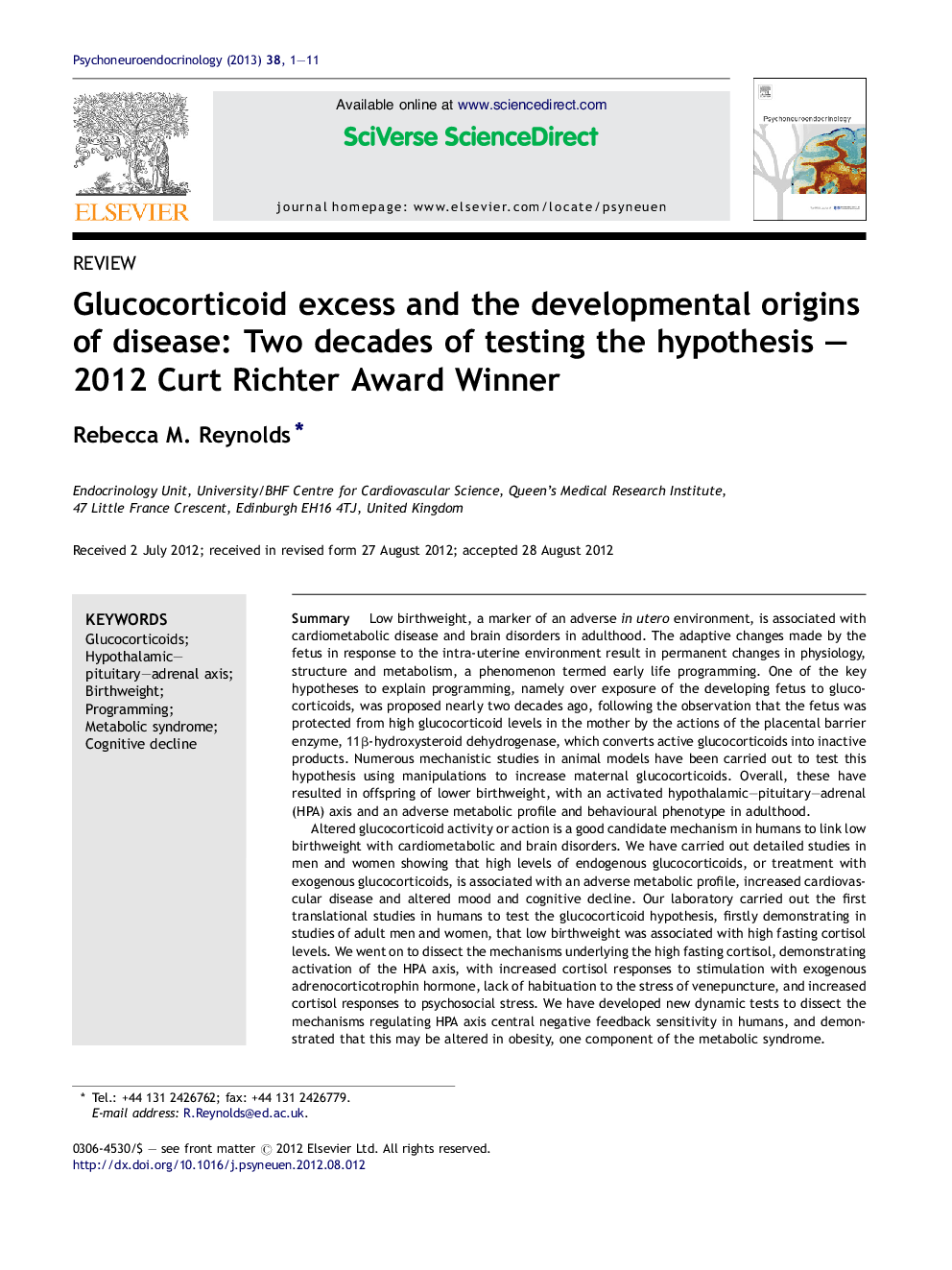| Article ID | Journal | Published Year | Pages | File Type |
|---|---|---|---|---|
| 10305864 | Psychoneuroendocrinology | 2013 | 11 Pages |
Abstract
The translational studies in support of the glucocorticoid hypothesis, and demonstrating that glucocorticoids are both mediators and targets of programming, are exciting and raise the question of whether this information can be used to identify those individuals most at risk of later life disease. In a recent study we showed that alterations in DNA methylation at genes important in regulating cortisol levels, tissue glucocorticoid action, blood pressure and fetal growth, are present in adulthood in association with both early life parameters and cardiometabolic risk factors. These preliminary data add to the limited literature in humans indicating a persisting epigenetic link between early life events and subsequent disease risk. Such findings open novel avenues for further exploration of the contribution of glucocorticoids to later life disease.
Keywords
Related Topics
Life Sciences
Biochemistry, Genetics and Molecular Biology
Endocrinology
Authors
Rebecca M. Reynolds,
